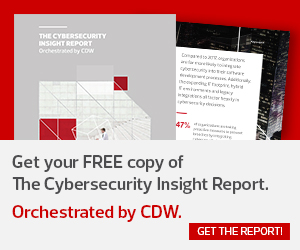How Blockchain Can Improve Security and Other Operations
Because blockchain is a public, noneditable record keeping technique, it’s a great tool for any organization that wishes to work on large-scale data projects without regulation. In 2015, The Economist even recommended that world governments begin to look into blockchain as a tool for breaking up bureaucracy.
A recent study in Renewable and Sustainable Energy Reviews found that blockchain’s “hash” functionality makes it an ironclad tool for security. “Cryptographic hash functions are mathematical algorithms or one-way functions,” the researchers explain. Hash functions “take an input and transform it into an output of specific length” called the hash output. “Their operation relies on the fact that it is extremely difficult to recreate the original input data from the hash output alone (collision resistance).” Blockchain automates the encryption process, and this makes it exceedingly difficult for hackers to manipulate this data.
Taking Advantage of Blockchain Benefits
Energy and utility companies can leverage blockchain technology to assist lines of business that need to share findings with other teams. As most power companies comprise many departments across various energy sources, blockchain can level the playing field and make each team’s data accessible to others. Most important, an energy company won’t have to worry about exposing its internal data because blockchain-based cross-functional sharing will stay secure as the program scales.
The website Disruptor Daily lays out several valuable potential use cases for blockchain in the energy and utility industries:
- Enabling an easier exchange of energy between suppliers and customers by tokenizing energy units.
- Using the distributed ledger technology of blockchain to establish microgrids that can monitor the consumption of energy and execute transactions, leading to more efficient energy use.
- Tracking where energy is created and stored to facilitate peer-to-peer energy trading.
- Monitoring energy prices to help operators of charging stations for electric cars better set prices.
- Tokenizing energy credits to make it easier to issue and track carbon offset credits, which can lead to reduced carbon emissions.
Blockchain’s uses extend far beyond the confines of resource mining, product development and customer relations. It can also be used to expand a company’s global network, and its inherent factual reporting structure also lends itself to generating reports for compliance purposes.
MORE FROM BIZTECH: Read more about the benefits of blockchain for e-commerce.
Tech Requirements for Blockchain
So, what do energy companies and utilities need to do to begin using blockchain effectively? First, they must determine whether they will benefit from a public, permissioned or private version. A public blockchain enables the general public to participate in its operation. In a private blockchain, only verified participants are allowed to enter the network. Permissioned blockchains are a mix of both public and private, enabling customization of operations.
An organization also must decide where blockchain data will be stored. IBM notes that “Data for a blockchain solution can either be stored on-chain as part of the core ledger managed by the blockchain protocol, or off-chain, using more traditional data stores.”
Because blockchain is peer-to-peer technology, it’s also vital for organizations to invest in sufficient training for all teams that will use it. Deloitte notes that the rise of blockchain signals a seismic shift across the technology industry. Although it will take time to familiarize staff with the uses and benefits of the technology, organizations can forge ahead with the knowledge that blockchain technology isn’t likely to become obsolete any time soon.
If anything, it’s just getting started.











